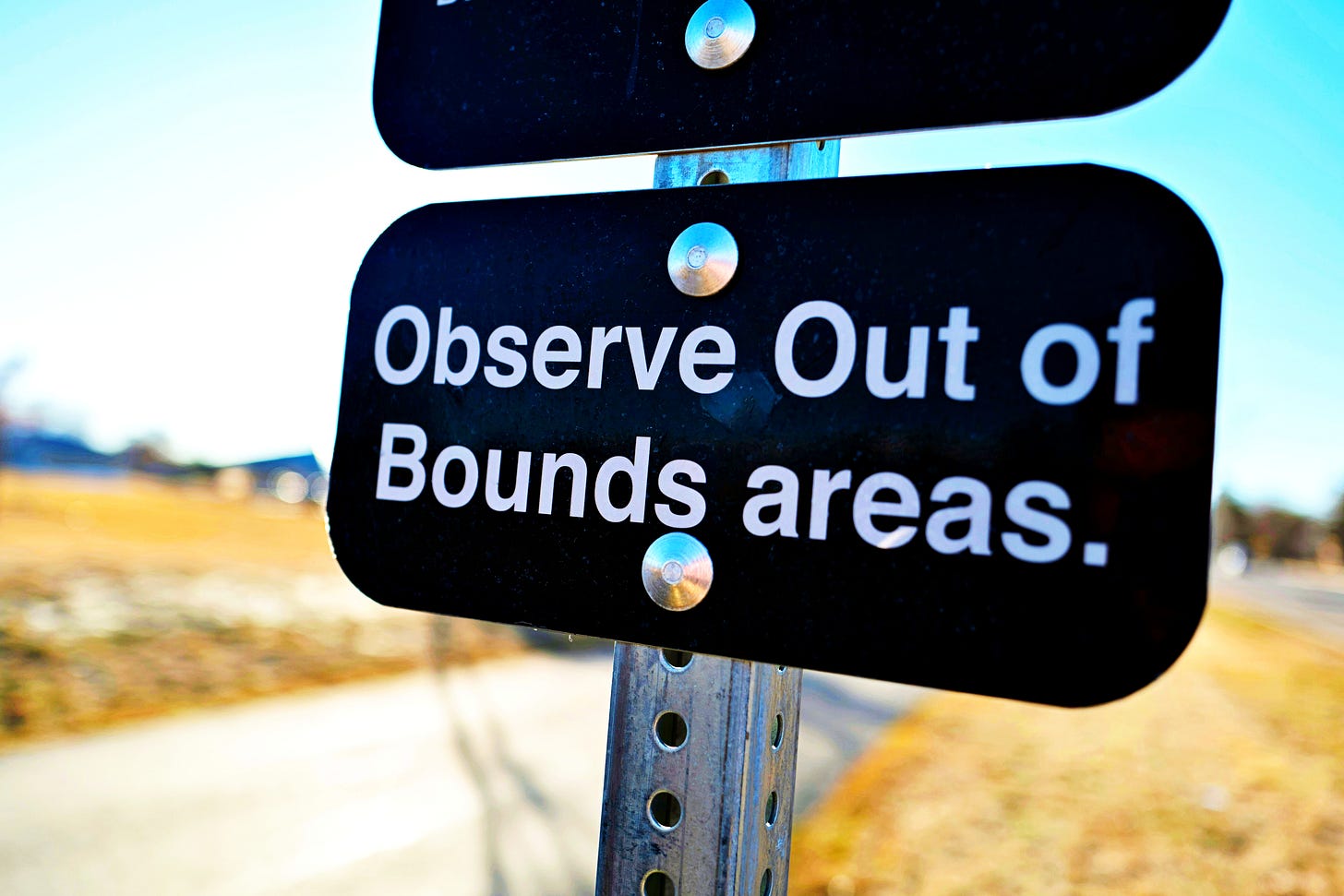The Anti-Rules: 10 Rules to Maintain a Codependent Relationship
How to stay small, safe and miserable from the comfort of your own home.
Many people will tell you what to do to stop codependency without looking at the benefits. Any sort of stuckness always has a secondary gain keeping it there. You're getting something from not changing, even if intellectually you've already decided it's a crappy reason.

I'll give you a simple example. I know how much better I feel when I snack on carrots and hummus. I feel healthy, energized and bright. Yay me! Self esteem expands with multiple pats on the back. It makes intellectual sense to always have snacks like this on hand so it's easier to choose them. But... sometimes I want mini eggs. They are my secret pleasure. They make me happy in a deep down way carrots will never reach. But too many of them give me a stomach ache.
Can you see the secondary gain I get when I choose mini eggs over carrots? If I forced it - making myself eat carrots when I want mini eggs - I'm doomed to fail. Unless I resolve that secondary gain - unless I can figure out a better way to feel that deeper happiness - mini eggs will eventually win out.
The same goes for relationship dynamics. We put up with unhealthy behaviors because we get something from it. What you get is either an absence or a presence. Examples of absences are not having to change, avoiding a fight, or not asking for something you need or want. Examples of presences are keeping the peace, feeling superior, or justification of your resentments. There’s a risk to taking up space.
Why not embrace the dysfunction and just go with it. Codependency is innately learned; no one tells you how to do it, you just know. The following rules are a tad tongue and cheek but framing them in this way helps us see what we're really doing. If you see yourself in these rules, don't despair. I've got some tips for new rules at the end.
Always Put Your Partner First, No Matter What
Your needs, dreams, and happiness don’t matter—your partner’s come first, always. This rule ensures you'll hold on to them by becoming irreplaceable. No one can love them like you.
Never Set Boundaries
Let your partner control your time, emotions, and energy. Saying no is selfish! Boundaries are risky and make others angry. Play it safe and small and you'll make sure you're protected from conflict.
Keep Your True Feelings to Yourself
If something bothers you, don’t mention it. Suppress your emotions to keep the peace. Your feelings take up the valuable space your partner needs to feel calm. If you must, complain to a friend or write in a journal. Whatever you do, don't let them out directly.
Take Full Responsibility for Your Partner’s Problems
If they’re unhappy, stressed, or failing, it’s your job to fix it. Even though it's crazymaking to take over when you don't have the same power, someone has to take responsibility. By working harder, you can make sure the bills are paid, the house is clean, and no one knows what's going on.
Avoid Asking for Help or Support
Struggle in silence—asking for help makes you look weak and unloving. If you ask for help outside your relationship, you're opening yourself up to criticism. Why isn't your husband helping you move this heavy thing? If you ask for help of your partner, it's just going to start a fight. Avoid pushback, defensiveness, and owing favors because you're just going to end up doing it yourself anyways. Hyper independent people are the strongest.
Stay in the Relationship No Matter How Unhealthy It Is
Leaving is never an option. If you’re miserable, just try harder to make them happy. You don't want to break up your family - it's expensive, time consuming, and there's no guarantee the grass is greener. Might as well stay and hope for the best. You get to show off your loyal and empathetic sides.
Lose Yourself in the Relationship
Ditch your hobbies, interests, and goals—your identity should revolve around your partner. These things are only taking up space anyway. Better yet, take up your partners hobbies, even if you don't like them. The upside is you get to spend time together and make your partner happy. And it's probably a good thing to learn the intricacies of some skill you'll never use.
Only Do What Your Partner Wants
Don’t have preferences of your own—let them decide where you go, what you eat, and how you spend your time. Take the pressure off of yourself to decide. You're already using those mind reading skills in other areas. Play the multiple choice game of suggestion wisely by never wanting something for yourself.
Let Them Guilt-Trip You into Anything
If they say, I’ll fall apart without you, believe them and stay no matter what. Don't spend too much time outside the house or on the phone with someone else. Definitely don't invite friends over because it's taking away from the time you stay alert and anticipating your partner's needs.
Ignore Your Gut Feelings
If something feels wrong, just tell yourself you’re overreacting. Your partner knows best. Gut feelings are unsettling and they rock the boat. Suppress them if you can and let them out as passive aggressiveness if you must. Maintaining a dysfunctional balance takes patience and perseverance.
Ugh, it was too easy to write all that. There's something innate and familiar in being codependent. It's a chorus of the manager and firefighter voices that keep us locked in that cycle. Changing means going against the grain and doing something new. It's work - a leap of faith that something good will come from it. The payoff doesn't come until much later and only when you look back.
If instead, you're tired of it all, the answer is already in the problem - flip each of these and do the opposite. I don't recommend doing that with all of them at once as your aim is to rock the boat, not overturn it. At the same time, don't be surprised when the pendulum swings fully the other way. Once we realize the total impact of what we do to maintain the secondary gains, often the response is to close ranks internally, hold rigid boundaries and speak too bluntly.

Codependent relationships can evolve into healthier versions but not all at once. Big change needs time and patience. Start with small changes and communicate your reasons to your partner. Give them a chance to think through things themselves. If they start growing alongside you, it won't matter who is being the healthiest. The point is for both of you to grow.
Watch out for fake or temporary changes in both of you. You'll have to really believe in something for it to stick. And it's called "co"dependency for a reason - it takes two to maintain the dysfunction. Your partner may do something small to get you off their back, then resort to old behaviors. You'll feel pulled back into the dance and it's at that very moment that you can do something different.
Focus on the dynamics instead of the issue in front of you. Pull it back and look at the big picture. Notice how one of you starts the moves, inviting the other to follow. Don't assign blame because you're in the mix as well. Instead, own your part in it and talk about your changes. It's a vulnerable place to be in but you're inviting your partner into a new rhythm. You can't force it, can't make them let go of their own secondary gains, but it's a start. And it'll give you valuable data for making decisions later. No matter what happens, you'll be better for it.



